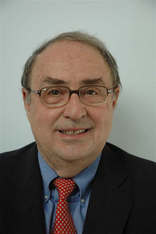17
2012Impact Measurement – Part Three of Three
A Post by James V. Toscano Measuring impact of nonprofit programs is clearly an important element in determination of benefit to society. It has also become a proxy to demonstrate return on investment to governments, foundations, corporations and other donors. The state of the art and science of such impact determination is largely work in progress. Certain nonprofit sectors, namely healthcare and education, are well advanced in such measurement compared to other sectors. Epidemiological methodology, such as used by the Centers for Disease Control and Prevention, has important elements that are available to be adopted/adapted by other sectors. Using such tools…
10
2012Impact Measurement – Part Two of Three
A post by James V. Toscano There is currently considerable buzz about performance, outcomes, results and other measures of impact in the nonprofit world. Foundations and corporate funders are now interested in what the results of the inputs of their grants are. Individual donors are told that they should also be very interested in what their gift dollars produce. In the Part One, questions on the uses of epidemiological variables and the need for standardized measurement and agreement on those measures were raised. In Part Three, the necessity for empirical testing to really determine causality will be explored in some…
30
2012Impact Measurement – Part One of Three
A post by James V. Toscano The Wall Street Journal Report on “Innovation in Health Care” of April 16 has a number of articles on directions in the way health care is moving, with constant referral to the mountains of data routinely collected on the multitude of variables considered important in measuring outcome. Having spent over thirty years of my career in nonprofit health care organizations managing research and education, I am most familiar with data, its collection, analyses, and uses. Modern medicine is built on empirical studies which determine significant directions in the diagnosis, treatment and care of patients….
14
2012
Nature Conservancy: Cavorting in Sea, Surf and Deep Manure
A post by James V. Toscano Certain specific demographic cohorts flock to the annual swimsuit issue of Sports Illustrated each year, presumably to experience nature and the environment up close. Some of our friends at Nature Conservancy were intrigued with the demographics of these readers, clearly holding the prospect of adding to NC constituency and donors, so they entered into a three-pronged sponsorship of this year’s swimsuit edition with the magazine and a high-end luxury website.
05
2012
We’re All Development Officers Now!
A post by James V. Toscano A much emailed and referenced article from McKinsey Quarterly by Tom French, Laura LaBerge and Paul McGill, “We’re all marketers now,” stresses the need for commitment from everyone in an organization to fully engage customers. The authors advocate a total organizational approach to marketing. Quoting the article: “…customers no longer separate marketing from the product—it is the product…In the era of engagement, marketing is the company.”
22
2012Does the Slippery Slope Start with Trash?
A post by James V. Toscano Once upon a time, there existed a fairytale love fest between nonprofit organizations and the municipalities in which they operated. Reciprocity was the rule, encouragement the standard. Access to tax-exempt municipal bonding had to be one of the great added benefits of this relationship, especially to those high budget, capital-intensive groups such as hospitals, colleges and museums. Cities and towns recognized the major contributions made to their citizens by nonprofit organizations. Health, education, and culture are necessities for any growing region trying to attract investment, business and an educated work force, with many other…
13
2012A New Beginning?
A post by James V. Toscano Memorial and honor gifts, the subject of a recent post, are kissing cousins to those hot responder gifts that arrive moments after catastrophe occurs. Now we hear that the Red Cross, with a pool of about 500,000 such donors, will join analysts at the Wharton School to discover messaging and tools to increase response rates from this group, typically only 10% the next year. Such donors are “the single biggest channel through which we can acquire new donors is in response to a disaster,” according to their senior director of market intelligence , although…
30
2012Memorial and Honor Gifts
A post by James V. Toscano TRADITIONS. Couples getting married usually are “registered” at places ranging from Tiffany to Target. Now along comes a story in the Wall Street Journal about couples who “have everything” registering on such sites as the Heiffer Project and Oxfam. The Journal tells us of a prospective bride who forgoes a bachelorette party for one of decorating cupcakes for the homeless. Lucette Lagnado, the reporter, observes on extending the traditional formula to “Something old, something new, something borrowed and something blue,’ by adding ‘something to give to charity.” However, the latest daughter in the Post…
14
2012Ten Thoughts on Retirement/Leadership Transition
Post by James V. Toscano With one-third of all Executive Directors reporting they will be leaving their positions in the next few years, I advance the following thoughts on retirement, now having retired this month for the third time. 1. Ensure that the Board of Directors has agreed to a succession policy and plan for top executive leadership well in advance of any announced departure. The Executive Director will probably need to initiate this policy, while board leadership needs then to jump in early and take responsibility. 2. Always nurture and work hard to develop all internal talent…
29
2011A Baker’s Dozen: New Year Resolutions for the Development Officer
Post By James V. Toscano 1. I will always remember that it’s the donor’s money. 2. I will always remember that fundraising is about the donor, not me. 3. I will always remember that donors need to be thanked and feel wanted as a vital element in the organization. 4. I will learn to cherish volunteers.
